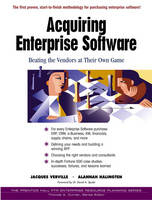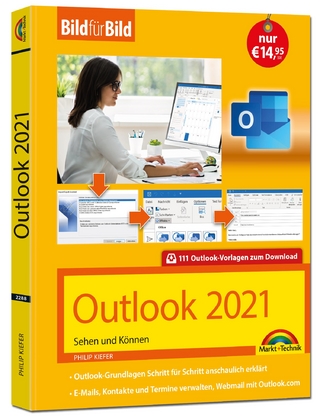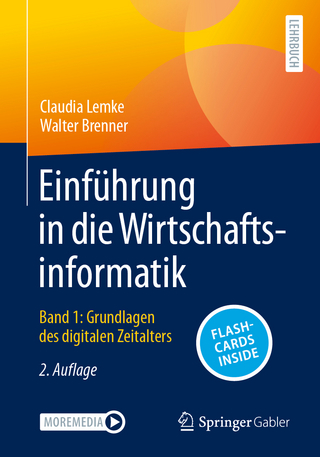
Acquiring Enterprise Software
Prentice Hall (Verlag)
978-0-13-085731-6 (ISBN)
- Titel ist leider vergriffen;
keine Neuauflage - Artikel merken
PLEASE PROVIDE
Very little is known, and even less has been written, about what companies need to do to successfully acquire enterprise software: despite the fact that enterprise software often costs tens of millions of dollars. This book is for the company that is in the market for ERP, CRM, financials, or other enterprise software. Based on leading-edge research on enterprise software acquisition, this book presents a start-to-finish methodology for defining the needs, writing the RFP, evaluating vendors and consultants, negotiating contracts -- and maximizing payback. Whether it is a large-scale enterprise deploying CRM for the first time, or a mid-sized company automating its supply chain, IT and business managers face a make-or-break business decision, a decision-if wrongly made-that can sink a company. Acquiring Enterprise Software provides the world-class experience and methodology needed to dramatically lower the risks associated with this decision. The authors begin with an overview of the enterprise software acquisition process. They identify the key influences on the acquisition process. Then, through detailed case studies, they present today's "best practices".
JACQUES VERVILLE is currently a Professor of MIS in the School of Business & Economics at Michigan Technological University. He has over 25 years of experience in both the IT industry and academia. His current research focuses on organizational enterprise software buying behavior, decision making, and implementation. ALANNAH HALINGTEN is a Research Associate with more than 10 years of experience with information technology.
1. Introduction.
Why Enterprise Software? The Implementation of Enterprise Software Solutions. The Enterprise Software Acquisition Process. Acquisition Team Formation. Acquisition Strategies. Requirements Definition. Establish Selection and Evaluation Criteria. Acquisition Issues. Marketplace Analysis. Deliverables. Influences and Critical Success Factors. References.
2. "Do or Die" The Case of International Air.
Organizational Profile. Background. International Air's ES Acquisition Process.
3. Detailed Analysis of The Case of International Air.
Planning Process. Information Search Process. Selection Process. Evaluation Process. Choice Process. Negotiation Process. Influences. Obsolete Systems. Y2K. Project Management Techniques. Technical Aspects of the ES System. User Community. Economic Factors. Support for Geographically Dispersed Global Operations. Single Vendor Solution. Business Process Reengineering. Vendor Demonstrations. Leadership. Competency. Interdisciplinary Nature of the Acquisition Team. User Participation. Past Experience. Characteristics and Critical Success Factors (CSFs). Lessons Learned.
4. Starting Point: Planning.
The Concept of Strategic Thinking. The ES Acquisition Planning Process. Interdisciplinary Nature of the Team(s). The Roles of the Steering Committee, MIS, Purchasing, and Users. Summary.
5. Request for Proposal.
Construction of the RFP. Terms and Conditions. Introduction. RFP Process. Current Organizational IT Infrastructure. Global Requirements. Types of Software Required. Process and Data Models. Interfaces. Future Systems Requirements. ES Solution Architecture. Technology Infrastructure. Technology Requirements. Functional Requirements. Implementation. Assumptions. Risks. Warranties and/or Guarantees. Intellectual and Industrial Property. Nondisclosure/Confidentiality Agreement. Acceptance Procedures. Miscellaneous. The RFP Responses.
6. "Even the Small Can Triumph" The Case of Keller Manufacturing.
Organizational Profile. Background. Keller's ES Acquisition Process.
7. Detailed Analysis of The Case of Keller Manufacturing.
Planning Process. Information Search Process. Selection Process. Evaluation Process. Choice Process. Negotiation Process. Influences on the ES Acquisition Process. Strong Management Commitment. User Community. An Aging System. Project Management Techniques. Economic Factors. Single Vendor Solution. User Buy-In. Business Process Reengineering. Leadership. Interdisciplinary Nature of the Acquisition Team. Cohesiveness of the Acquisition Team. Characteristics and Critical Success Factors (CSFs). Lessons Learned. Conclusion.
8. Information Search.
Information Search and Sources. Summary.
9. "Investigate, Investigate, Investigate" The Case of Energy Systems Corporation (ESC).
Organizational Profile. Background. ESC's ES Acquisition Process.
10. Detailed Analysis of The Case of Energy Systems Corporation (ESC).
ESC's Planning Process. Information Search Process. Selection Process. Evaluation Process. Choice Process. Negotiation Process. Influences on the Acquisition Process. Y2K. Obsolete Systems. Well-Known Issues That Arise During Implementation. Organizational IT Objective. Business and Technological Reasons. Economic Factors. Outside Consultants. Project Management Techniques. User Community. Capped Budget. Single-Vendor Solution. Integratibility of the Software. Business Process Reengineering (BPR). Vendor Demonstrations. Ease of Adaptability of the ES. Technological Preference. User Buy-In. Leadership. Y2K. Interdisciplinary Nature of the Acquisition Team. Competency. Characteristics and Critical Success Factors (CSFs). Lessons Learned. Summary.
11. The Halfway Mark: Selection.
The Selection Process. Summary.
12. Enterprise Software Evaluation Process: Vendor, Functional, and Technical.
Evaluation Processes and Tools. Single- or Multiple-Vendor Solutions. Other Vendor Evaluation Criteria. Functional Evaluation Criteria. Business Processes. Implementation. Role of the Technical Evaluation Team. Summary.
13. "Down to the Wire and Then, No Dice" The Case of Telecom International.
Organizational Profile. Background. Telecom International's ES Acquisition Process.
14. Detailed Analysis of The Case of Telecom International.
Telecom International's Planning Process. Present Status Assessment. Information Search Process. Selection Process. Evaluation Process. Choice Process. Negotiation Process. Influences. Geographically Dispersed Team Members. New Management. Economic Factors. Ownership of Code. Software Support for Geographically Dispersed Global Operations. Acquisition Team Composition. New Management. Final Authority Outside the Acquisition Team. Summary.
15. Choice and Negotiations.
Choice Process. Negotiation Process.
16. Influences, Critical Success Factors, and Lessons Learned.
Influences. Physical Location of the Vendor. Y2K. Performance. Ownership of Code. Organizational Culture. External References. Final Authority. New Management. User Buy-In. Integrated Single-Vendor Solution. Economic Factors. Acquisition Team Composition. Leadership. Past Experience. Steering Committee. Critical Success Factors (CSFs). Lessons Learned.
17. Conclusion.
Index.
| Erscheint lt. Verlag | 1.8.2000 |
|---|---|
| Verlagsort | Upper Saddle River |
| Sprache | englisch |
| Maße | 234 x 179 mm |
| Gewicht | 499 g |
| Themenwelt | Informatik ► Office Programme ► Outlook |
| Wirtschaft ► Betriebswirtschaft / Management | |
| ISBN-10 | 0-13-085731-9 / 0130857319 |
| ISBN-13 | 978-0-13-085731-6 / 9780130857316 |
| Zustand | Neuware |
| Haben Sie eine Frage zum Produkt? |
aus dem Bereich


